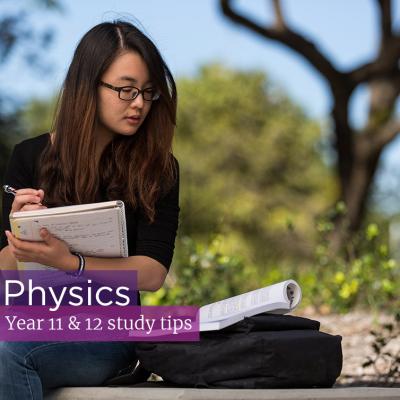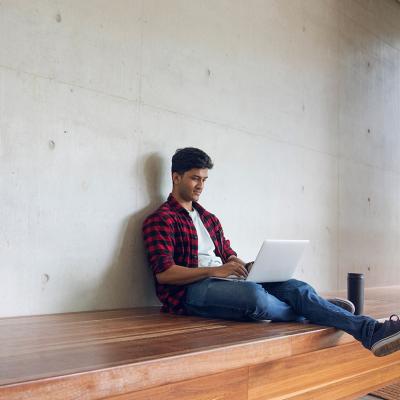Are you studying Engineering in Year 11/12 or thinking about doing so? This subject isn’t an easy one, but it can be incredibly rewarding – both during your high school years and beyond as you transition into university.
To help you get the most out of studying engineering and perform well in the assessments, we’ve got some advice from Aditya Neurgaonkar, a current Bachelor of Engineering (Honours) student at UQ who received a 99.95 ATAR with Engineering as one of his subjects. Here are his top tips for how to study engineering.
Is Engineering hard to study?
Engineering may not be a walk in the park compared to some less-intensive subjects, but Aditya believes it’s not too difficult if you have the right habits and attitude.
“The only ‘difficult’ aspect of Engineering, I would say, is the broad range of topics covered and ensuring that you are keeping up with the syllabus and asking for help immediately if you do not understand a concept,” he says.
“This is especially important for Year 11 Engineering students, as many of the underlying concepts covered in Year 12 Engineering rely on your competency in Year 11 Engineering concepts.”
So, is engineering hard to study in Year 12? Hopefully not – as long as you get the jump on it by cementing your knowledge of the topics taught in Year 11 and staying on track with the syllabus as you progress through the year.
The other aspects of Engineering that sometimes trip up students include:
- needing to understand complex mathematics (Aditya says the maths involved in Engineering is quite similar to that covered in Mathematical Methods, and so the difficulty is similar too)
- preparing for exams (especially the external exam) well in advance
- having the mental endurance for a significant assessment piece.
But none of these factors need to be your Achilles' heel, as you’ll see in Aditya’s guidance below.
How to study engineering effectively: connect it to your other subjects
Many of the concepts you’ll learn in Engineering can be difficult to understand at first. One thing that helped Aditya tie everything together was finding the connections between Engineering and his other subjects.
“Year 11/12 Engineering tends to overlap with many key concepts covered in Physics and Chemistry, and it tends to be a really good consolidation and application of skills learnt in Mathematical Methods and Specialist Mathematics – generally concepts involving forces,” he says.
“A key thing to focus on in Engineering is trying to notice these links learnt from various subjects and see how all these concepts link together in practice.”
Aditya mentions the investigation of polymers as a prime example of this, as it comes up in both Engineering and Chemistry.
“I felt that my overall understanding of the topic had increased depth, as I viewed it from an engineering perspective but also from a deeper chemistry lens,” he says.
“Essentially, try to recognise the underlying principles and the common concepts across the subjects to try and create a mental ‘link’.”
How to study for Engineering exams
Due to its wide scope of topics, Engineering is one of those subjects you really can’t get away with cramming for.
“Engineering tends to cover a broad range of topics, from material science to gear ratios and pulley systems, so starting revision early and chipping away small chunks really helps around exam times,” says Aditya.
“One of the hardest parts of Engineering my classmates and I found was managing time and answering some of the ‘Complex Unfamiliar’ style questions during exams – especially the Engineering external exam.”
By spacing out your revision and giving yourself plenty of time for practice, you too will be able to recognise which part(s) of the exam are likely to give you any trouble.
For Aditya, the first step to overcoming this hurdle was allocating a set time to each question in the exam and coming up with a rough order for solving them – while also allowing a margin for double-checking his answers.
Completing practice exams was hugely helpful, but Aditya also chose to take this one step further.
“I found that exposing myself to the practice exams, and even creating my own exams and sharing them with the class, helped a lot in consolidating my knowledge,” he says.
“Creating your own questions is fundamental to truly consolidating your knowledge, as it forces you to think from the perspective of the marker and design questions – as well as the answers – that students might get.”
“This process helped me identify potential areas I could make an error in during the exam.”
Clearly, Aditya didn’t make many errors, which suggests his “DIY exams” approach to revision can be quite effective indeed.
In addition to completing regular practice exams and adopting a time-allocation strategy, Aditya also found flashcards to be a valuable tool for supplementing his revision in Engineering. There are apps that can help you build virtual flashcards, though you may prefer the tactile experience of creating them yourself.
So, should you study Engineering?
If you’re considering pursuing engineering as a career and your high school offers this subject, it’s an excellent opportunity to get a sample of what this field has in store for you.
But even if “engineer” isn’t at the top of your list for future jobs, this subject can be incredibly rewarding for anyone with an interest in how things work – and those “things” can range from the smallest devices to the largest cities.
For advice on doing your best in all your subjects – and more great study tips from Aditya – read How to get a high ATAR. Or explore study advice for your other subjects.






